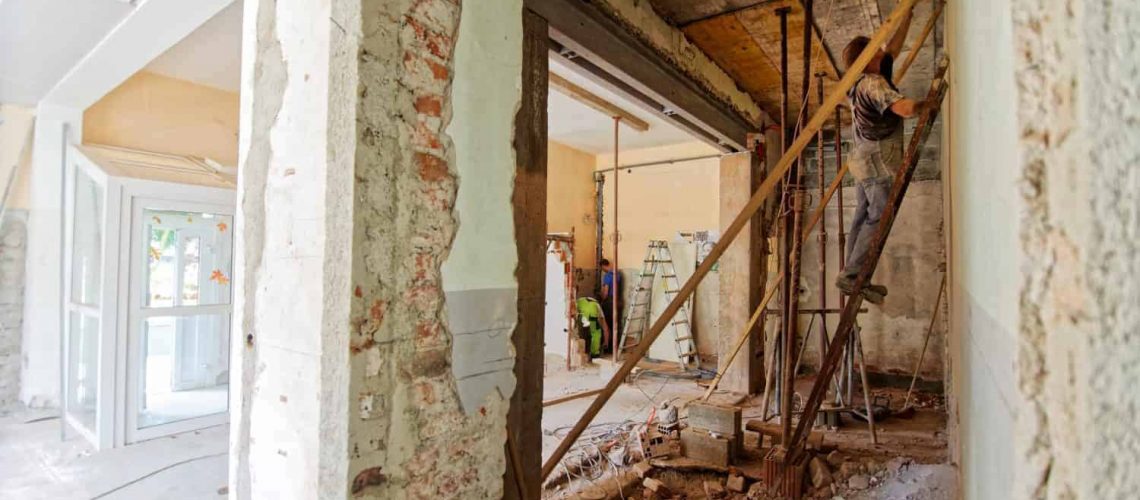It never fails, the most exciting part of these investor fix and flip shows is the demo stage. It’s the fun time to put holes in the walls and use a sledgehammer. It’s time to pull out the cabinets and knock walls down. Without the proper inspection and without the new plan, the rehabbers could knock out a load-bearing wall or take something out that is essential.
If you’re in survival mode then chances are debt is pushing you down. I agree with many of the consumer advocates in paying the smallest debt to the largest here, but just like everything else, there’s a way that entrepreneur does this that’s just slightly different.
As an entrepreneur, you might think debt is good. It’s especially easy to think about it this way with celebrity entertainers like Grant Cardone suggesting that debt is good. When you discuss debt from the popular angle of “OPM” (aka Other People’s Money) it’s almost always in the context of investment. Buying an investment property with 20% down, where you carry 80% in debt is a good investment (assuming you’ve done your due diligence). Raising funding for a new startup is a kind of debt. Understand that leveraging debt to make an income isn’t bad. However, going into debt for the wrong reasons is.
There is a big difference between strategically going into debt to seize an opportunity vs going into debt with no clear plan on how to pay it back.
Personal Debt Is Bad
Personal debt is bad 99% of the time. Period. There isn’t a good kind of debt. Your mortgage is the only exception. In a perfect world, you’d live off your minimum expense (what we called the “floor” in our Financial Rehab) and put all the available resources into paying down debt and never ever go there again. However, that’s usually not a sustainable plan for someone who is a commissioned salesperson or an entrepreneur. So what I am suggesting is that you attribute a percentage of income designated to debt paydown.
One simple example might be to designate 10% of your income to knock down debt. (You can use the Financial Rehab Blueprint Worksheet to help you)
How To Demolish Your Personal Debt
- Layout your debt from smallest to largest.
- Set a percentage of your income that will go towards demolishing the debt.
- Pay off the smallest debt first. This is not the most efficient way to pay the debt but it is the most rewarding. As you pay off debt you will build small wins and start to build a habit of paying down debt.
- Pay the minimums on other debt.
- Once the first debt is paid, take that minimum payment + your percentage to pay down the next debt.
Example
Anthony has two credit cards, one is $12,000 at 8% and another at $5,000 at 4%. He has a car note with $9,000 left on it and that one is a mere 1%. His 2nd mortgage is at 5% with $50,000 left and his student loan is 4% and he’s got another $25,000 to pay.
Anthony sits down with a financial planner from RichLife Advisors and they come up with a plan that is similar to our Financial Rehab Blueprint. This plan is suggested is a “guideline”, not the hard and fast rule. Anthony is running a restaurant business and although the income is steady overall it does fluctuate from month to month. He figures he averages about $5,000 a month take-home pay.
He works with his budget and carves out 10% as a commitment minimum to knock down his debt. However, he also wants to accelerate this. So he sets an upper limit to his budget and some “triggers” (more on that in a minute) to pay it down.
He arranges his debt the following way.
- $5.000 Credit Card
- $12,000 Credit Card
- $9,000 Car Note
- $25,000 Student Loan
- $50,000 2nd Mortgage
He will pay the minimum payments on all his debt. He has to incorporate all the minimum payments into his monthly budget. In addition, he’ll add $500 extra every month to the lowest debt. In this case, he’ll be paying down his credit card at $5,000. In the real world, this will look slightly different but in our simple example, he’ll pay off his credit card in approximately 10 months.
Why The Demolition Works
As I mentioned this isn’t the most efficient way to pay down the debt. If you worked everything out, it will take Anthony around 17 years to pay off all this debt. What a slow process!
Creates A Habit
The Debt Demolition works because it creates a habit. The habit of saving a portion of your income and designating it to pay down debt.
Creates An Awareness
Once you commit to this plan, you’ll be more aware of the debt and less likely to go into more debt.
Creates Early Wins
Paying down debt for 17 years sounds like an awful way to live. However, with the Debt Demolition method, you’ll be creating early wins. In addition, what’s not shown in the math is that extra minimum payment being added to the next debt. Essentially, you freed your money from being in bondage to the smallest debt and recruited it to help you pay down larger debt items.
Creates Lasting Change
We’ve been talking a lot about the Financial Rehab being similar to a home renovation. The Debt Demolition is important because it doesn’t just get you out of debt but creates a life long habit. One habit to avoid debt. However, the bigger “win” is the habit of learning how to live on less. Once you are truly debt-free you can apply this same amount to saving or giving.
Why Be Debt Free?
As mentioned above, debt is like a prison for your money and your life. Debt is created when you purchase something that you could not afford to buy. A home is great example, most can’t afford to purchase a home outright. Debt is the solution here. However, now part of your monthly money is held hostage until it’s paid off. When you pay off your debt you gain the freedom to do the things you truly enjoy like giving. We are blessed to be a blessing and getting out of debt is one of the hardest parts of the Financial Rehab.



